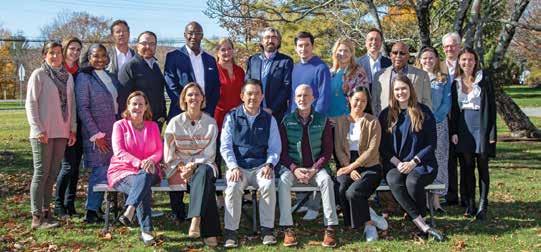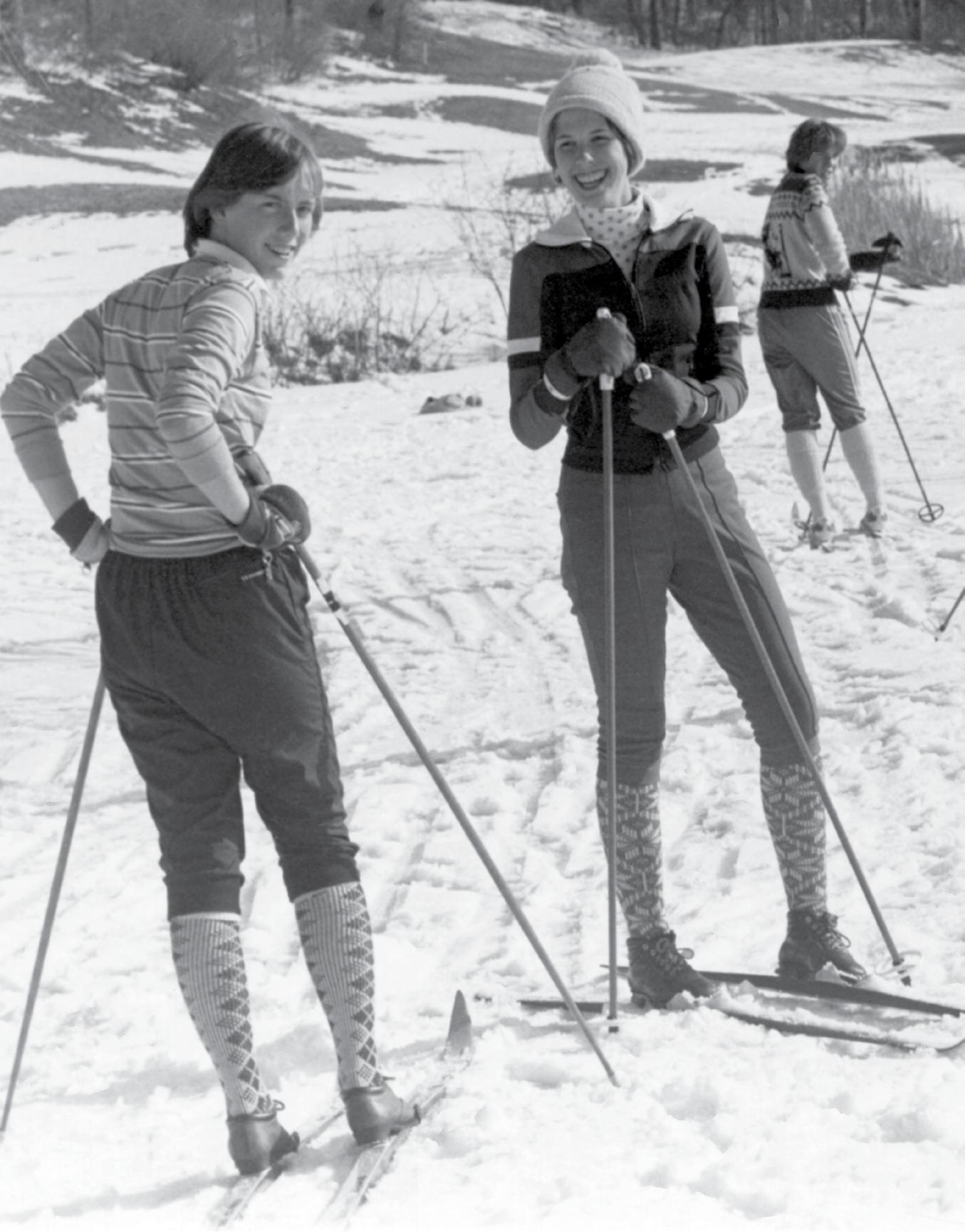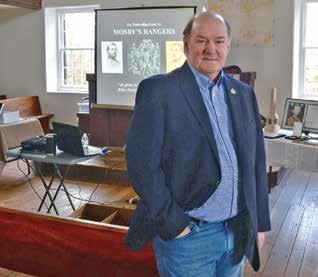
3 minute read
The Board of Governors Congratulates the Recipients of This Year’s Alumni Awards:
ALUMNI AWARD
CNN anchor Chris Wallace ’65 has covered many of the world’s biggest stories throughout his award-winning journalism career, which spans more than 50 years (see p. 8).
Community Service Award
For more than 20 years, Elizabeth Irvin ’93 has dedicated her career to providing compassionate and effective mental health care for women who have experienced trauma (see p. 9).
The Alumni Award recognizes individuals who, through personal achievement, have brought honor and distinction to the School. The Community Service Award honors the service contributions that Hotchkiss graduates have made to their respective communities, whether local, national, or international. Please submit your nominees for these awards via our website at go.hotchkiss.org/nominate.
Call for Nominations
Hotchkiss Alumni Association Board of Governors
Winter Wonderland
Students enjoyed Nordic skiing in this photo from 1980. Bearcats skied competitively for almost 50 years, beginning in 1937 and ending around 1985. Skiing was important enough in 1937 that The Hotchkiss Record reported that the new gymnasium—now known as Monahan—would include a ski room in the basement. Hotchkiss teams competed in both alpine and Nordic skiing in addition to participating in the town of Salisbury’s long tradition of ski jumping.

November 2022 Alum of the Month: Eric Buckland ’73 ’73
It brought together an eclectic group of people into a singular family. With Dave Sermersheim’s ‘gentle oversight,’ we became an entertaining phenomenon that only Hotchkiss could have spawned. Anyone at our final 1973 performance will never forget it. It still makes me smile.” One of the singular honors of his life was being elected captain of his cross country team. “We developed lasting bonds.” counterdrug operations. For 20-plus years, I worked with federal, state, local, and tribal law enforcement agencies. Counterdrug operations are complicated and challenging, but are critically important to the safety of our nation.”
LTC (R) ERIC BUCKLAND ’73 says his time at Hotchkiss made him “self-reliant and self-disciplined,” reinforcing the critical relationship between effort and achievement, etching deeply in his mind the importance of mentors. These lessons served him well during a 22-year career in the U.S. Army, including 15 in Special Forces (Green Berets). His last years in the military were spent in counterdrug operations; he continued this work with the White House Office of National Drug Control Policy.
Buckland praised faculty members for giving him the guidance to succeed at Hotchkiss. “My parents wanted me to be challenged, so I found myself a member of the Class of 1973. My efforts were mediocre until faculty members Dave Sermersheim, Walter Crain, George Stone, and Blair Torrey became my mentors—resulting in an incredible senior year.”
Torrey’s English class instilled in him a love of writing. “Even now, when writing, I wonder what he would think,” he says. “I was also part of Buddy Weiser & The Hops, a musical group formed by some classmates.

In the ROTC, Buckland found another mentor. “The senior non-commissioned officer was an experienced Special Forces master sergeant. He encouraged me to go to Airborne and Ranger School, igniting my desire to attend the Special Forces qualification course.”
A primary mission of Special Forces is training soldiers from other countries. Buckland trained hundreds during deployments to Latin America. “The training is usually focused on improving professionalism and inculcating the importance of respecting the human rights of civilian populations and enemy combatants.”
Buckland was the operations officer in the John F. Kennedy Special Warfare Center and School that conducted all initial skill training for U.S. soldiers going through the Special Forces qualification course, with training occurring simultaneously for 1,000 to 1,500 soldiers. “The job was challenging and rewarding,” he says. “I also commanded the company responsible for training all soldiers slated for assignment to Civil Affairs units.”
Of his work in counterdrug operations, he notes the natural progression from the military to the White House Office of National Drug Control Policy. “The military missions of unconventional warfare, foreign internal defense, and counterinsurgency are similar to
Proud that he “did everything in my power to take care of the soldiers for whom I had responsibility,” he also mentored them. “As a company commander in the 82nd Airborne Division, my Special Forces experience affected the way I trained and led my paratroopers, and many re-enlisted becoming Special Forces soldiers. I am also very proud of graduating from the Army’s Ranger School—the hardest thing I ever did!”
To students, Buckland says of the Special Forces, “At times I was exhausted and miserable from spending days in the jungle. At times, I was terrified, but there were also times I felt intense pride and accomplishment. If that sounds appealing, I would recommend it as a career.”
Buckland’s decorations include: Legion of Merit, Meritorious Service Medal; Joint Service Commendation Medal; Ranger Tab; Special Forces Tab; Master Parachutist Badge; Combat Infantryman’s Badge; Special Forces Underwater Operations Badge; and the Air Assault Badge.
He has been married to his wife, Maureen, for 43 years. They have three grown sons and three grandsons, with a fourth on the way. Buckland now spends much of his time researching Mosby’s Rangers, a Confederate Civil War unit. “Their activities were similar to some of my Special Forces missions. I was compelled by the activities of individual Rangers and intrigued by their successes after the War.” He has self-published several books and had articles published in America’s Civil War magazine. H









